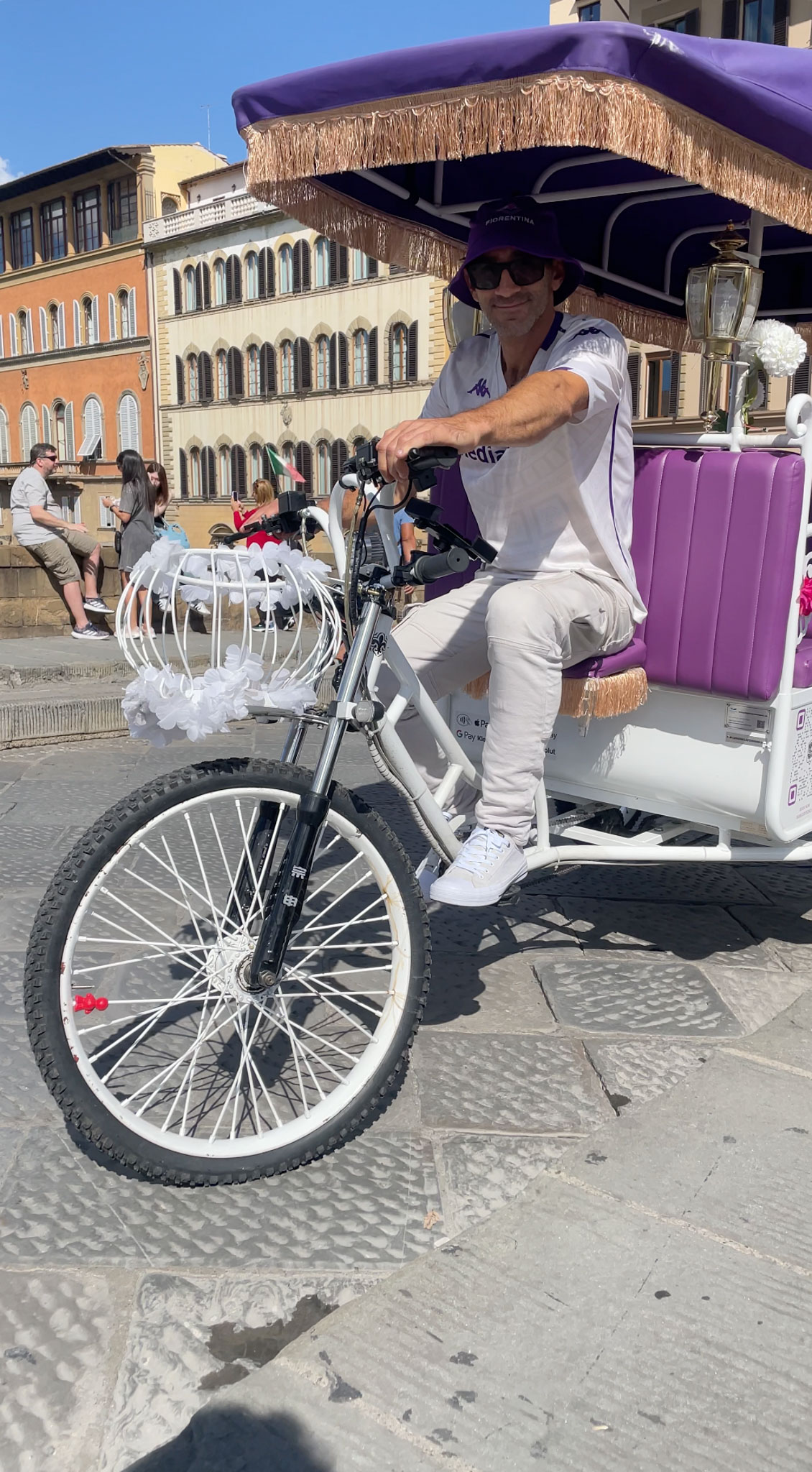By Falcone Geddes
Copyright theflorentine

On October 15, Florence will enforce a sweeping ban on rickshaws, golf carts and other atypical tourist vehicles within the UNESCO-protected historic centre. City officials say the measure is intended to safeguard safety, livability and the dignity of the Renaissance capital, where crowds of tourists already congest narrow medieval roads. But for Karim Hendawy, driver and founder of Rickshaw Florence, the regulation is a devastating blow.
“I struggled to reach this point,” he says, riding his gleaming purple rickshaw. “I spent a lot of money to buy these bikes and start my business. I searched for people who could build them in Italy, but in the end I had to get them shipped from China. I didn’t want to work illegally. I waited months to get all the right documents, and two weeks after I started, they announced this new law.”
The law, passed by the city council earlier this summer, bans all rickshaws and golf carts inside the historic centre, while allowing a limited fleet of 24 golf carts to operate on two fixed peripheral routes: Lungarni ovest, running between Cascine Park and Ponte alla Carraia, and Piazzale e Lungarni est, operating between piazza Ferrucci and piazzale Michelangelo, both avoiding the busiest parts of the city altogether. These vehicles must be tied to licensed tour operators, be painted white and seat no more than eight passengers. Unauthorized vehicles will be confiscated and violations could lead to fines of up to 500 euro.
The comune frames the measure as an act of preservation. In a July press release, councillor Andrea Giorgio said: “We are the first major tourist city in Italy to adopt a regulation of this kind for the historic centre, with three objectives: road safety, reducing traffic in the UNESCO area and safeguarding the decorum of the historic centre.” Or, as Hendawy says, “we don’t line up with the five-star, elegant way they want to present the city.”
For Karim, who arrived in Florence from Egypt after completing a degree in commerce and working in branding and tourism, the policy feels like punishment rather than regulation. “They are treating everyone the same, even those who followed all of the rules. I showed my documents to the police before I started. They told me everything was fine.”
Karim insists he runs his service responsibly. Unlike some drivers accused of clogging intersections, he keeps to fixed points and stops at RideMovi parking spots. “I don’t give tours. I’m very frank about this,” he explains. “I’m studying to become a tour guide, but for now I just offer a point-to-point service. For elderly people, families with children or visitors who have only one day, it makes a big difference.” He points towards the church of Santa Maria Maggiore. “I know this is the oldest church in Florence, built in the ninth century, but if I were doing a guided tour I’d have to learn who built it and how.”
With over seven million annual visitors, the regulations come amid rising tensions over tourism in Florence. The new law is part of a wider campaign that has also targeted short term rentals, as the city council struggles to juggle economic dependence on hospitality and complaints from residents about overcrowding and “Disneyfication”.
Wearing a Fiorentina hat and jersey, he gestures to his rickshaw, painted in the club’s distinctive purple. “I was thinking about the football club when I made these bikes. I wanted to present Florence in a good way, to make it stand out.” Karim’s rickshaw, in the short time it has operated, has become an icon in Florence. Children ask for rides, event organizers ask to borrow it and, in the short time we spend together, at least a dozen passersby stop to photograph it. “A young Italian man told me he was jealous of me, that he wished he’d had the idea.”
But the uncertainty has drained him. “I was planning to invest more, in marketing, in social media. Now I think: what’s the point? Better to invest my time looking for my next job. They destroyed everything. Laws should be constructive, not destructive.”
As the October deadline approaches, the municipal police is gearing up to enforce the new rules. “Instead of banning, they should have enforced regulations on our work. That would be constructive,” says Hendawy. “To solve a problem, you have to look for all the ingredients, not just one.”